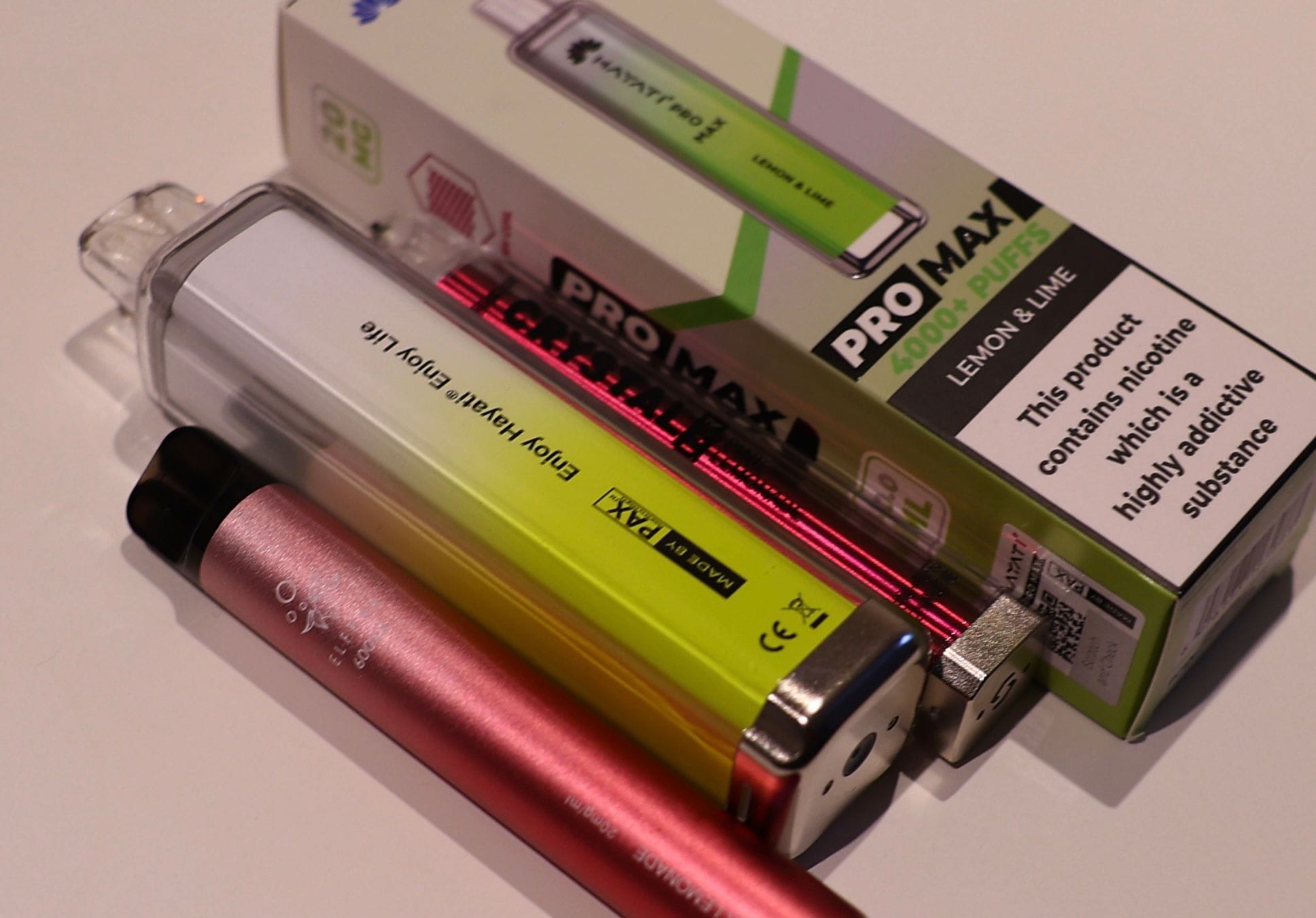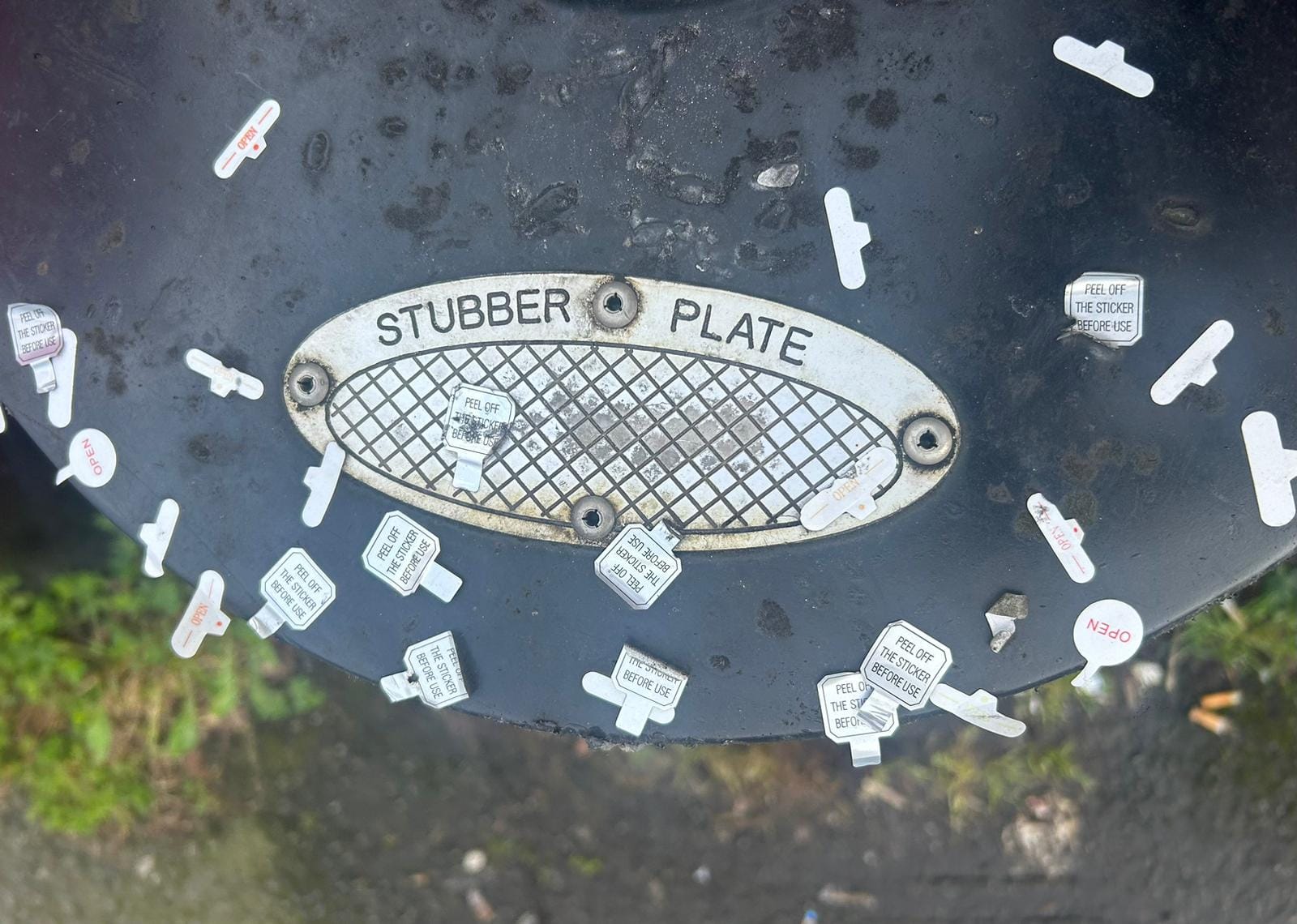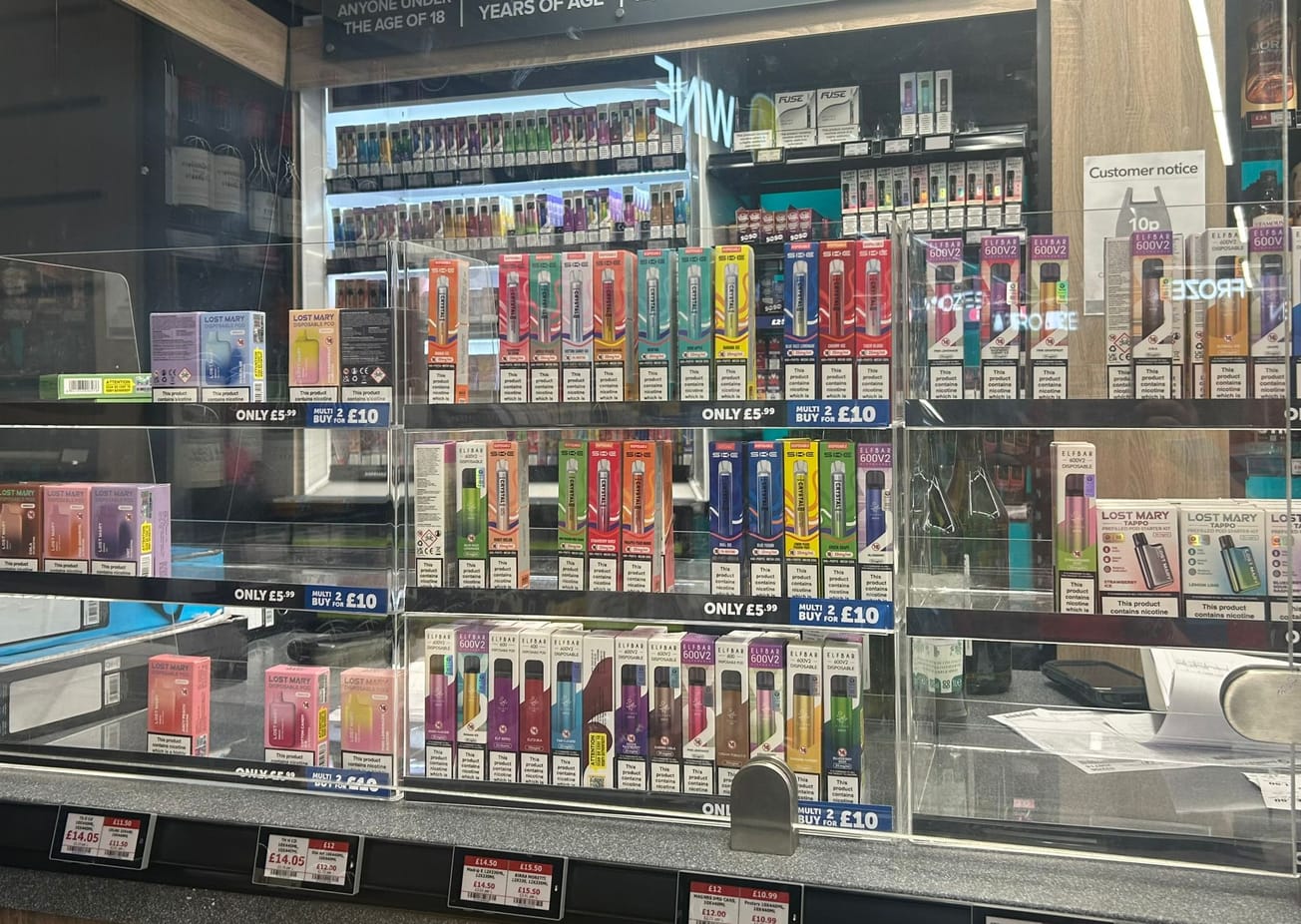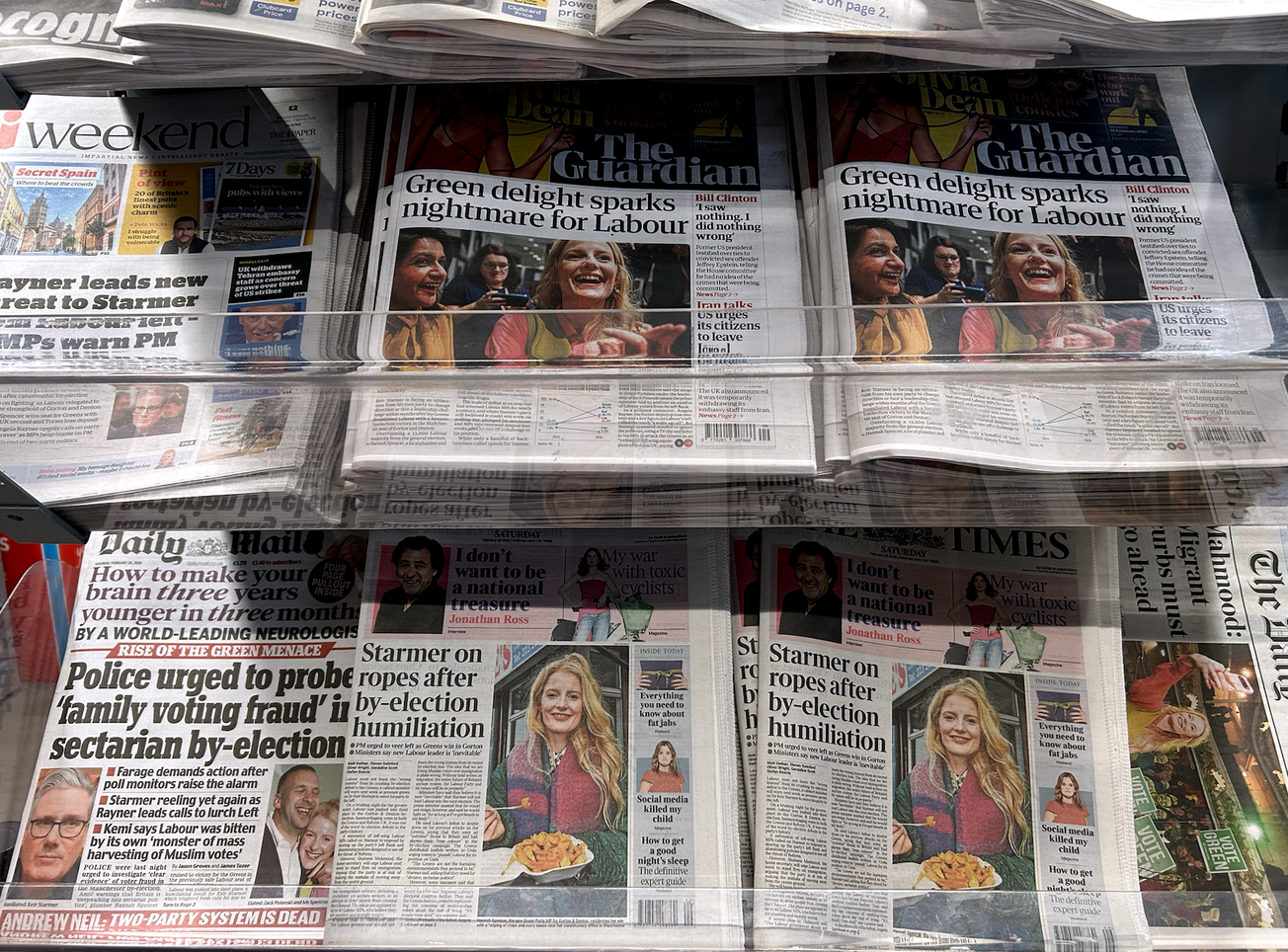By Johnny Harrison, Third Year, Russian and Politics
Rishi Sunak recently announced government plans aimed at countering the rise in underage vaping, most notably a full ban on disposable vapes. While this feels like a step in the right direction, these new laws could be rendered useless and put the public at even more risk.
Ah, the quintessential British bus ride: a delicate dance to find a seat between empty crisp wrappers and discarded newspapers printed a few weeks prior. Over recent years, a new comrade has joined the foray: disposable vapes. These pocket-sized neon devices tend to rear their ugly heads in bus seat crevices and under grotty park benches. It feels as though vapes are now more of a common sight than cigarettes, the product to which they were originally marketed as a healthy alternative. On the surface, this seems like a positive sign in the war against smoking. The proportion of current smokers in the UK in 2022 was 12.9%, a 7.3 percentage point decrease compared to 2011 (20.2% of the population). However, the number of children using vapes has tripled in the last three years and the bulk of that increase has been driven by disposables. These products are easy to hide from parents and teachers as they are small and usually don’t leave a scent, unlike cigarettes. The obvious solution to this problem? A ban, of course!
Sunak’s proposed new laws are certainly not a world first. Australia and New Zealand announced bans on disposables in 2023, citing familiar concerns over the e-cigarette industry’s transition from a “healthy” smoking alternative to a shady recreational habit marketed towards kids. Neither ban has been in place long enough to draw conclusions on their efficacy. Nonetheless, there has been a global realisation in the past few years that the vaping industry is no longer what it once was; many people, children included, are picking up vaping despite never having been a smoker. Unfortunately, the industry is capitalising off of this shift.

A primary concern with the ban on disposable vapes is that it takes away a viable smoking alternative for adults who are genuinely addicted to cigarettes. Legitimate e-cigarettes contain the nicotine that satisfies a smoker’s cravings but should lack the tar, carbon monoxide and countless carcinogens present in a pack of Marlboro Golds. Thus, in the future, those transitioning from smoking to vaping should use non-disposable vapes instead of soon-to-be-illegal disposables. However, this solution also applies to those who have developed nicotine addictions solely from vaping, children included. There is little stopping children from switching to refillable, rechargeable e-cigarettes after the ban is put in place. Of course, part of the appeal of a single-use vape is that you buy it, use it and when you’re done you can simply throw it away. Oftentimes a ‘dealer’ will buy hundreds from a sketchy off-licence and then resell them to nicotine-addicted schoolchildren. Perhaps having to rely on reusable vape devices would make this business model less effective but shops and dealers will want to continue to make money and could find alternative methods to make reusable vapes more readily available.
More importantly, there is little guarantee that a ban would stop or even curb the prevalence of disposable vapes. The new laws would need to be thoroughly enforced to ensure that the import and sale of these products is stopped. It’s estimated that around half a billion vapes are bought in the UK each year, so trying to control such a widely produced device, usually imported en masse from China, would be challenging. Banning disposables could also generate a black market of unregulated products. Currently, vapes and their content are tightly regulated for safety and quality, but a ban would get rid of this regulation. This issue has similarities with the controlled substance industry. Despite being a Class A drug, it’s estimated that London’s annual pure cocaine use has an estimated street value of more than £1bn. Thus, legislation and policing doesn’t stop the drug from being extremely prevalent and, on a more relevant note, recreational drugs like cocaine remain unregulated. Illegal vapes contain at best high nicotine levels and at worst toxins like lead, nickel and chromium. It’s possible to buy these devices without ID in the UK despite them not being advertised in shop fronts, a BBC study confirmed. A ban on disposable vapes could increase demand for these carcinogenic e-cigarettes as they’ll soon be just as illegal as the legitimate, regulated disposable vapes that are popular today. Furthermore, the advent and ease of online shopping makes sourcing and purchasing products like illegal vapes directly from the supplier all the more simple.

Ultimately, the balance between harm reduction and strong legislation is a challenging one to strike. The new laws limiting colourful packaging on e-cigarettes and bizarre vape juice flavours are welcome and should have some effect. No adult trying to quit smoking through vaping needs to be using a ‘mango bubblegum’ flavour to satisfy their nicotine cravings and this type of vape is clearly produced to make vaping more palatable to children. Underage vaping is undoubtedly a problem in the United Kingdom but it remains unconvincing that a ban on disposable vapes is the best way to tackle this issue.
Featured Image: Annabel Lee-Ellis
What do you think about the ban on disposable vapes? Tell us @epigrampaper








